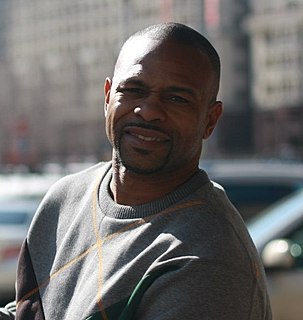A Quote by Matt Haig
It can be difficult for people to talk about it, because there still is that stigma around mental illness. But I would encourage people to do that, because they'll be surprised once they do 'come out' how many other people have had similar experiences.
Related Quotes
You can now share your story anonymously much more easily than you could earlier and you can watch people have conversations about it. And when people come out and say negative things about you, there will be other people who have had similar experiences or who know people who have had similar experiences who will defend you.
I don't think people talk about mental illness a lot, but they need to know it's OK to talk about how they are feeling. People are afraid of telling the truth because they think it's going to hurt everyone around them. I've kept so much inside that I've literally lost it. I wish more people would get help when they feel like they need it-- not just to look to medicine, but to the support of others.
One of the issues I think is very important, in many communities of color, there's a stigma about mental health. We find that the shaming that comes from acknowledging that one may have some issues that may relate to mental health, often people are not willing to go and seek additional help because of that shaming or that cultural stigma that's associated with it. And I think that we need to make this change in how people approach mental health.
Many of my fellow atheists consider all talk of 'spirituality' or 'mysticism' to be synonymous with mental illness, conscious fraud, or self-deception. I have argued elsewhere that this is a problem - because millions of people have had experiences for which 'spiritual' and 'mystical' seem the only terms available.
To get a person's real opinion, ask what she thinks everyone else believes... If people truly hold a particular belief, they are more likely to think that others agree or have had similar experiences. [People] tend to assume that other people have had life histories at least somewhat similar to their own. When we talk about other people, we are often talking about ourselves, whether we know it ourselves.
I never was a person that wanted that life...I'm a leader not a follower. I don't care what they say, or what they're doing or what they're wearing. Go ahead, cos come Judgement Day, all of that won't matter. How many people did you help. How many people did you talk to. How many people did you try to encourage. How many people did you bring to God. That's what's gon' matter.
In terms of - my relationship with so many, many young people. I would - I would guess that there are many young people who would come forward. Many more young people who would come forward and say that my methods and - and what I had done for them made a very positive impact on their life. And I didn't go around seeking out every young person for sexual needs that I've helped. There are many that I didn't have - I hardly had any contact with who I have helped in many, many ways.
Television is just amazing - how many people see it and how many people recognize you, and I think once you've had the opportunity and have been in front of the public, it's very flattering to have people come up and say hello to you. It's a tremendous industry. I've been in places where people come out of the woodwork. And you would never think - small towns in France or traveling through Europe - and there are so many of those people there that recognize you, and you've been in their homes. I find it to be a very flattering thing.
Even with all that - excellent treatment, wonderful family and friends, supportive work environment - I did not make my illness public until relatively late in life, and that's because the stigma against mental illness is so powerful that I didn't feel safe with people knowing. If you hear nothing else today, please hear this: There are not 'schizophrenics'. There are people with schizophrenia, and these people may be your spouse, they may be your child, they may be your neighbor, they may be your friend, they may be your coworker.
Everyone should still want to put their music out because it's important that people still think that you are still willing to come to them. When you're dealing with the Internet, it's a 'come to me' situation. But when people see you out-and-about, promoting your merch and in the club, people enjoy that, too.
I think mental illness or madness can be an escape also. People don't develop a mental illness because they are in the happiest of situations, usually. One doctor observed that it was rare when people were rich to become schizophrenic. If they were poor or didn't have too much money, then it was more likely.






































